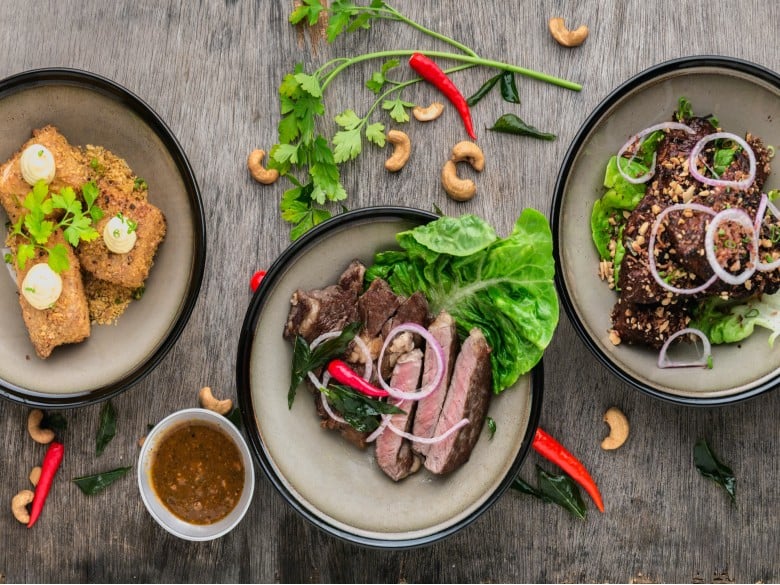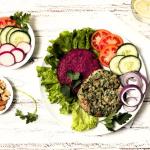
It does not matter which faith you subscribe to. Religion affects every area of your life, including what you wear and how you act. Your faith plays a role in what you eat and how you see food.
To examine this topic in-depth, first, we will explore how the Bible shapes our perceptions of food. Second, we will discuss how other faiths view foods, and third, we will talk about the psychological aspects of religion that influence our food choices.
What Does The Bible Say About Clean And Unclean Foods
The Bible provides us with a lot of information about clean and unclean foods. Leviticus 20:5 instructs us to distinguish between the unclean and clean. The scripture goes on further to say that we should not devalue ourselves by eating beasts, birds, or anything that crawls on the ground that has been deemed unclean. Additionally, Leviticus 11:9-12 says that we can eat fish with fins and skins, but fish without fins or scales are unclean.
In contrast, Mark 7: 18-19 says that nothing we eat can defile us. Jesus did away with all those rules suggesting that all foods are clean.
I’m not telling you what you should and should not eat. What you eat is your personal choice. I am merely showing you how your Christian faith influences your perception of foods and the effects that it can have on your eating habits.
For example, I love conch. It is a Bahamian delicacy and a national treasure.
I was raised Methodist. I was aware that there were unclean and clean foods in the Bible. However, I was also aware that all foods were deemed clean in the new testament.
My view of conch has always been positive. So whether I choose to eat conch or not is a personal choice.
In contrast, a Seventh-Day Adventist may not feel the same way. Conch is considered a shellfish. According to Leviticus 11, shellfish, along with pork, rabbit, and several other foods. These are seen as unclean. Therefore, a Seventh-Day Adventist will have a negative perception of conch and avoid it at all costs.
How Does Faith Impact Food Choices
Aspects of our religion can also affect what we buy. Muslims are known for halal food. They do not consume meat such as lamb or chicken that is not processed using halal techniques.
Jews only consume kosher foods. While some meat is allowed, it can only come from ruminant animals with split hooves, like cows and deer. Jews cannot eat or serve meat at the same time as dairy products. These are only a few of the dietary rules Jews have regarding food.
Hinduism teaches veganism. It is based on the concept of Ashima, which means being non-violent to all life, including animals.
While the animals are not seen as unclean, they are perceived to be alive. Therefore, persons who subscribe to this faith purchase plant-based foods.
Even though religious preferences vary from region to region, most Buddhists subscribe to a vegetarian lifestyle. Like Hinduism, this lifestyle choice is also based on the principle of nonviolence to all living things. Slaughtering animals will cause them suffering, so Buddhists choose not to consume meat.

How Does Religion Affect The Psychological Relationship People Have With Food
Faith and psychology are often intertwined. For example, your faith affects how you feel about food and your body.
We deem certain experiences as religious or sacred. For example, a Catholic may decide to give up food for Lent.
Lent is all about self-reflection and forgiveness. Lent has 3 main pillars: prayer, fasting, and almsgiving.
Almsgiving means helping others who are less fortunate. It is a way of expressing faith. For example, an individual may give their time to a cause or provide food to others.
Typically, Catholics do not eat meat on Fridays during Lent. However, some Catholics give up meat entirely during Lent.
During this time, an individual’s perception of meat may change. They can reflect and compare how they felt while eating meat and how they felt when they removed it from their diet. They may decide to become vegan because they realize meat is not good for their body.
Globally Muslims fast during Ramadan. This religious practice is based on the belief that Muhammad received the Quran during this month. Muslims fast during the day and consume food before dawn or after the sun sets.
Ramadan is considered one of the most holy months. Fasting is one of the core principles of the Islamic faith. It is a sacred practice that affects the way they see food. Our faith plays a big role in who we are, how we conduct ourselves, what we eat, and how we feel about food. Faith is one of the core principles that shape our relationship with food.












